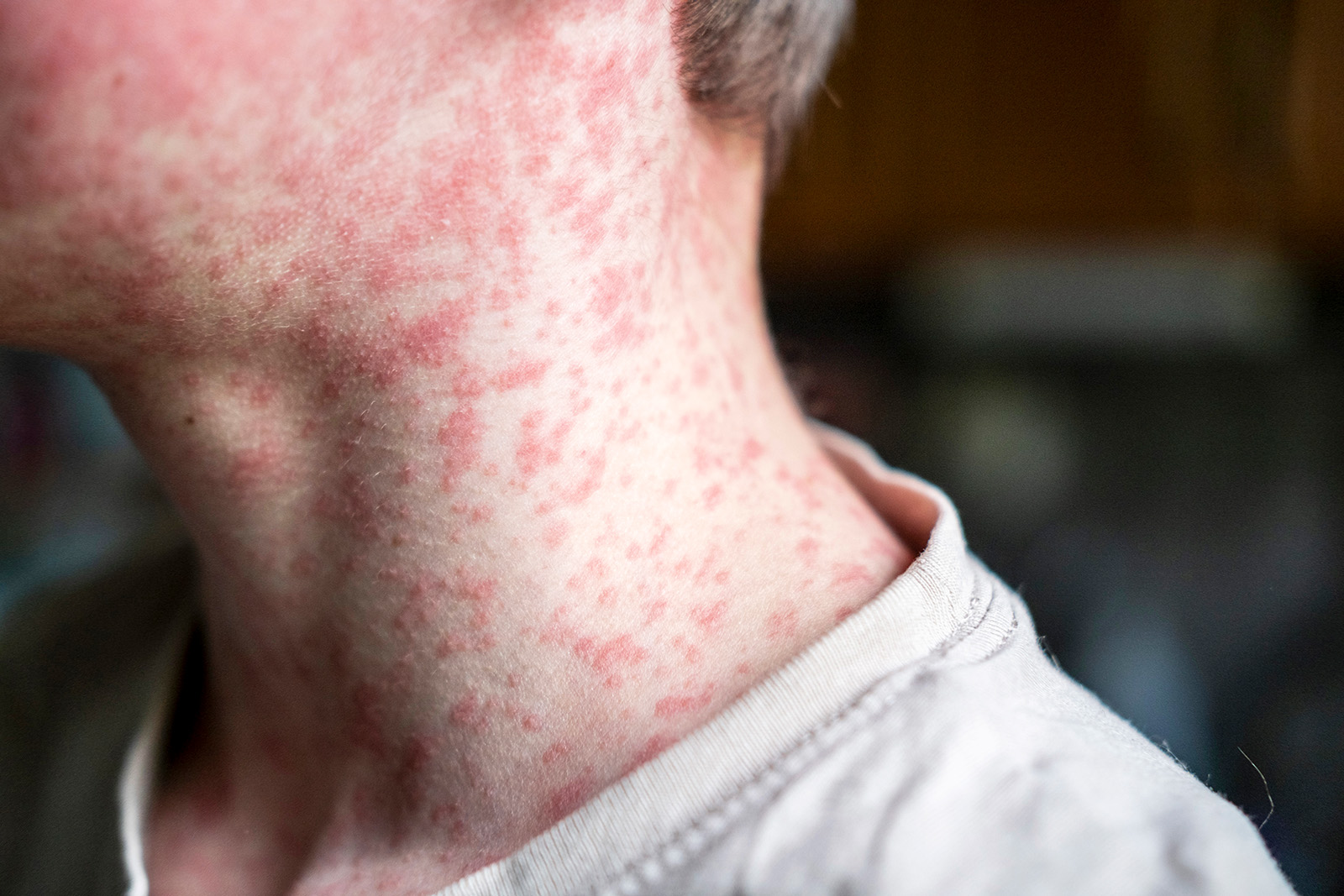
The independent source for health policy research, polling, and news.
VOLUME 19
Bird Flu Knowledge, Misleading Claims About Measles Prevention, and Health Content Restrictions
Summary
This volume features findings on beliefs about bird flu from KFF’s latest Tracking Poll on Health Information and Trust, as well as the false promotion of vitamin A as a preventative for measles. The Monitor also shares developments in content moderation on social media and how a study about mental health after gender-affirming care is misrepresented to make false claims about health care for transgender and non-binary people. Additionally, this volume explores when people prefer to use an AI chatbot, instead of a person, for health information.
Featured: Latest KFF Poll Finds Many Are Unaware of Current Public Health Recommendations on Bird Flu
KFF’s latest Tracking Poll on Health Information and Trust finds that large shares of the public are unaware or unsure of what precautions are currently recommended by the CDC to protect individuals from bird flu. Fewer than half of adults are aware that public health officials recommend avoiding close contact with sick animals (45%) and avoiding unpasteurized or raw milk products (39%), with most adults saying they are either unsure or incorrectly saying these actions are not currently recommended. Half of the public is aware that public health agencies are not recommending avoiding eggs from a grocery store for bird flu prevention, while about one-third (35%) are aware that wearing a mask in crowded spaces is not currently recommended for bird flu prevention.
The survey also found notable partisan gaps when it comes to trust in the CDC for bird flu information. Fewer than half of Republicans (42%) say they trust the CDC at least a “fair amount” to provide reliable information about bird flu, compared to larger shares of independents (61%) and Democrats (72%) who expressed trust. This partisan divide on trust in the CDC is consistent with KFF’s past polling showing divisions in trust in the agency on health issues in recent years, but represents a shift from the start of the COVID-19 pandemic when at least eight in ten adults across partisans expressed trust in the CDC to provide information on coronavirus.
Recent Developments
False Claims about Vitamin A for Measles Prevention as Outbreak Grows
A measles outbreak in Texas and other states continues to grow, with cases quickly rising and multiple deaths reported. According to the Centers for Disease Control (CDC), two doses of the measles, mumps, and rubella (MMR) vaccine are 97% effective in preventing measles. However, growing concerns about vaccine safety have contributed to declining vaccination rates, exacerbating the outbreak. According to the Texas Department of State Health Services, only five patients diagnosed with measles in the current outbreak are known to have received at least one dose of the vaccine, although the department notes that some patients may have been vaccinated after exposure to reduce the risk of severe illness.
Alongside growing vaccine hesitancy, some are turning to nutrition as an alternative prevention method. One emerging narrative promotes vitamin A and other nutritional supplements as an effective way to prevent and treat measles. On March 4, a prominent organization that spreads false claims about vaccine safety shared a post on X stating that the CDC’s website now recommends vitamin A treatment for children who are hospitalized with severe measles. While the CDC has updated its measles guidance, it recommends vitamin A treatment only in a hospital setting and under a doctor’s supervision. Some comments advocated for the MMR vaccine and correctly warned that too much vitamin A without medical supervision may cause both short-term and long-term health complications, others falsely suggested that giving children high doses of vitamin A is a safe and effective way to prevent measles.
Vaccine opponents who promote this claim often cite research showing that vitamin A deficiency—which is rare in the U.S.—can increase the risk of death from measles and other infections to falsely suggest that vitamin A prevents measles. The World Health Organization recommends vitamin A along with vaccination for children at risk of vitamin A deficiency in countries where vitamin A deficiency is common, but it cannot prevent measles infection and long-term, repeated use can carry risks, including liver damage. Even a single large dose of vitamin A can cause nausea, vomiting, blurred vision, and dizziness.
The claims gained traction when Department of Health and Human Services (HHS) Secretary Robert F. Kennedy Jr. published an op-ed for Fox News where he acknowledged that vaccines prevent measles, but also wrote that “good nutrition remains a best defense against most chronic and infectious illnesses.” In an interview with Fox News, Kennedy said that doctors in Texas were giving cod liver oil, which is high in vitamin A, to their patients and “getting very, very good results.” He has since falsely claimed that the MMR vaccine causes the measles-like illnesses, including encephalitis, and leads to deaths every year. However, there are only three published reports of encephalitis among those who are vaccinated, and a study from the CDC’s Immunization Safety Office found no causal link between the MMR vaccine and death.
Social Media Health Content Moderation Under Scrutiny While FTC Launches Investigation
Meta is facing renewed criticism for restricting posts about abortion pills on Instagram and Facebook, with some accounts becoming undiscoverable in search results (“shadow banned”) or suspended entirely. Meta told The New York Times that it may have removed these posts or accounts if they violate the company’s policies on pharmaceutical sales, but reproductive health groups argue that these actions limit access to health information following the Supreme Court’s decision to overturn Roe v. Wade. Meta has recently pledged to scale back its fact-checking in an effort to uphold free speech, but these recent actions have led some, including U.S. Senator Ruben Gallego, to question whether Meta’s commitment to free speech applies equally to all issues.
Recent policy actions may further shape how health information is moderated online. In February, the Federal Trade Commission (FTC) launched an investigation into potential censorship by technology platforms, inviting public comments from users who have been “banned, shadow banned, demonetized, or otherwise censored.” As of March 11, more than 1,200 comments had been submitted, with some users reporting past removals of COVID-19 posts. In 2024, the Supreme Court reviewed the Biden administration’s role in moderating social media content on topics like COVID-19 and vaccines, but ruled that the plaintiffs did not have standing to bring the case. The FTC investigation follows an executive order from the Trump administration aimed at ending federal involvement in content moderation, while examining past efforts to curb health misinformation. While the executive order opposes censorship, other actions by the Trump administration have been accused of promoting it, including efforts to restrict information on gender equity.
Study on Transgender Mental Health Misrepresented to Discredit Gender-Affirming Care
A new study on the mental health of transgender people after gender-affirming surgery is being misrepresented to claim that gender-affirming care causes poor health outcomes. The retrospective study, published in the Journal of Sexual Medicine, found that transgender adults who had gender-affirming surgery were more likely to report negative mental health outcomes than transgender adults who did not have surgery. However, the authors do not attribute this effect to the surgery, stating instead that these findings may reflect: that individuals receiving gender-affirming surgery experience higher levels of baseline psychological distress compared to those who do not, provider charting practices that are more likely to record gender dysphoria prior to surgery and other mental health diagnoses after surgery, or that those individuals receiving surgery interact with the health care system more often and therefore have more opportunities for mental health diagnoses to be charted.
Transgender people often experience depression and anxiety due to minority stress, including enduring ongoing experiences of stigma and discrimination, even after transitioning. Discrimination in health care settings can further limit access to mental health care and contribute to systemic distrust. A 2023 KFF-Washington Post poll found that a majority of transgender adults (64%) have been verbally attacked because of their gender or sexual identity, while about three in ten trans adults said they had to teach a doctor about trans people to get appropriate care or had a doctor refuse to acknowledge their preferred gender identity. However, the poll also found that eight in ten (78%) trans adults say that living as a gender different from the one assigned to them at birth has made them “more satisfied” with their lives.
On X, a podcast host and author with approximately 4.8 million followers shared a screenshot of an article about the study and misinterpreted it to allege that gender-affirming surgery worsens mental health. As of March 11, the post received about 45,000 likes, 17,000 reposts, and 2,400 comments. Other X users, including commenters on the post, correctly noted that stigma may contribute to trans people experiencing ongoing mental health symptoms before and after surgery and that the study did not account for undiagnosed mental health outcomes before surgery. Some cited previous research showing that gender-affirming surgery is associated with improved mental health and noted that regret rates for gender-affirming procedures are significantly lower than those for other types of surgeries. More broadly, studies have found positive associations between gender-affirming care and mental health.
AI & Emerging Technology
Study Finds People Prefer Chatbots When Embarrassed, But Humans When Angry
Researchers from the University of Kansas published the results of a study investigating differences in how people perceive health information provided by generative AI chatbots and information provided by humans. The study recruited 100 participants who were either angry or embarrassed when talking about COVID-19 vaccines and boosters, then randomly assigned them to discuss vaccine information with either an AI chatbot or a lab researcher. Afterwards, participants who were embarrassed reported that they preferred chatbots, while those who were angry reported a preference for humans. According to the researchers, this may be because chatbots can be perceived to be nonjudgmental, suggesting that AI chatbots could play a role in reaching certain audiences who may hesitate to seek health information from human sources. KFF polling from 2024 explored trust in AI chatbots for different types of information, highlighting potential limitations of using chatbots for health communication. While about half of adults said they trust AI chatbots at least a fair amount to give accurate information about practical tasks and technology, fewer trusted their reliability for information on health (29%) or politics (19%). Though certain hesitant audiences may be more comfortable getting health information from chatbots, their effectiveness may be limited by broader concerns about AI’s credibility.
Support for the Health Information and Trust initiative is provided by the Robert Wood Johnson Foundation (RWJF). The views expressed do not necessarily reflect the views of RWJF and KFF maintains full editorial control over all of its policy analysis, polling, and journalism activities. The Public Good Projects (PGP) provides media monitoring data KFF uses in producing the Monitor.






